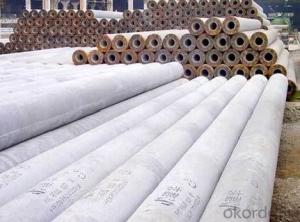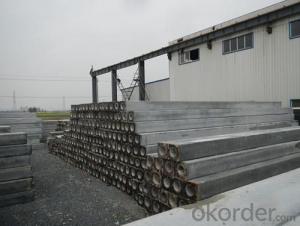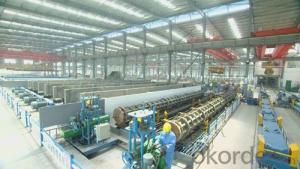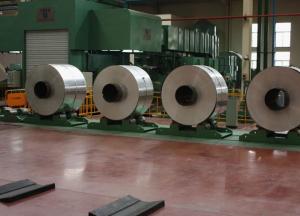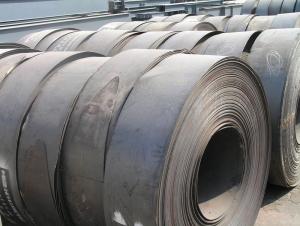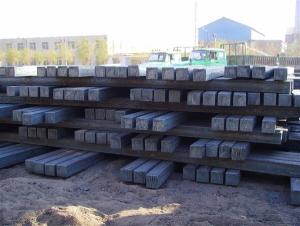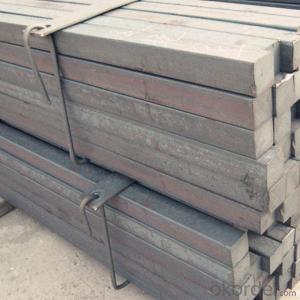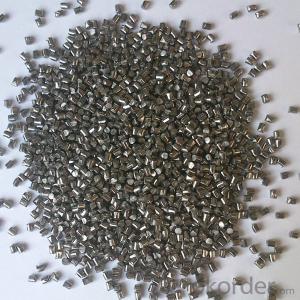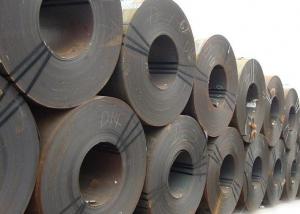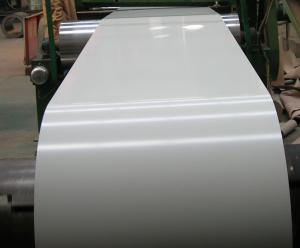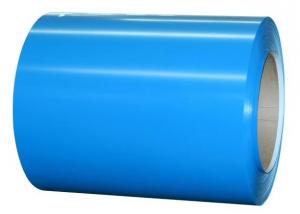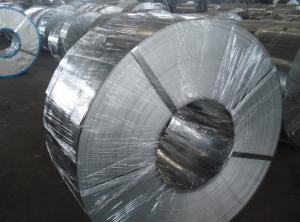Round Steel for Construction with High Quality Made in China Hot Rolled
- Loading Port:
- China main port
- Payment Terms:
- TT or LC
- Min Order Qty:
- 25 m.t.
- Supply Capability:
- 2000 m.t./month
OKorder Service Pledge
OKorder Financial Service
You Might Also Like
Product Description:
OKorder is offering Round Steel for Construction with High Quality Made in China Hot Rolled at great prices with worldwide shipping. Our supplier is a world-class manufacturer of steel, with our products utilized the world over. OKorder annually supplies products to European, North American and Asian markets. We provide quotations within 24 hours of receiving an inquiry and guarantee competitive prices.
Product Applications:
Round Steel for Construction with High Quality Made in China Hot Rolled are ideal for structural applications and are widely used in the construction of buildings and bridges, and the manufacturing, petrochemical, and transportation industries.
Product Advantages:
OKorder's Round Steel for Construction with High Quality Made in China Hot Rolled are durable, strong, and resist corrosion.
Main Product Features:
· Premium quality
· Prompt delivery & seaworthy packing (30 days after receiving deposit)
· Corrosion resistance
· Can be recycled and reused
· Mill test certification
· Professional Service
· Competitive pricing
Packaging & Delivery:
Packaging Detail: products are packed in bundle and then shipped by container or bulk vessel, deformed bar is usually naked strapping delivery, when storing, please pay attention to moisture proof. The performance of rust will produce adverse effect.
Each bundle weight: 2-3MT, or as required
Payment term: TT or L/C
Delivery Detail: within 45 days after received advanced payment or LC.
Label: to be specified by customer, generally, each bundle has 1-2 labels
Trade terms: FOB, CFR, CIF
FAQ:
Q1: Why buy Materials & Equipment from OKorder.com?
A1: All products offered byOKorder.com are carefully selected from China's most reliable manufacturing enterprises. Through its ISO certifications, OKorder.com adheres to the highest standards and a commitment to supply chain safety and customer satisfaction.
Q2: How do we guarantee the quality of our products?
A2: We have established an advanced quality management system which conducts strict quality tests at every step, from raw materials to the final product. At the same time, we provide extensive follow-up service assurances as required.
Q3: How soon can we receive the product after purchase?
A3: Within three days of placing an order, we will begin production. The specific shipping date is dependent upon international and government factors, but is typically 7 to 10 workdays.
Images:
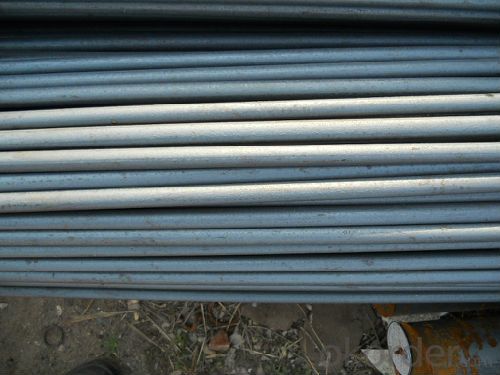
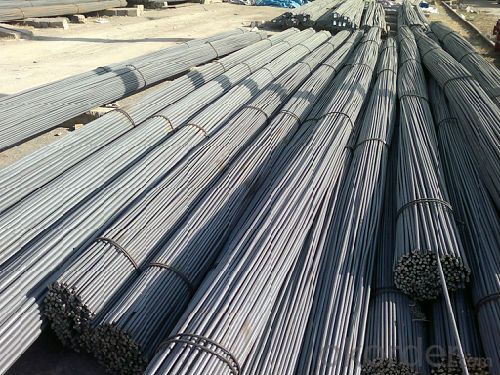
- Q:How is steel tubing used in the manufacturing of hydraulic cylinders?
- Steel tubing is commonly used in the manufacturing of hydraulic cylinders due to its high strength and durability. It provides a reliable and rigid structure to hold the hydraulic fluid and withstand the intense pressure and forces involved in hydraulic systems. The seamless construction of steel tubing ensures smooth fluid flow and minimizes the risk of leakage, making it an ideal choice for hydraulic cylinder applications.
- Q:How is steel used in the construction of sports stadiums and arenas?
- Steel is commonly used in the construction of sports stadiums and arenas due to its strength, durability, and versatility. It is used in the framework of the structures, providing the necessary support and stability. Steel beams, columns, and trusses are used to create large open spaces, allowing for uninterrupted views of the playing field or arena. Additionally, steel is used in the construction of roofs, seating structures, and even the infrastructure for lighting and sound systems. Overall, steel plays a crucial role in ensuring the safety and functionality of sports stadiums and arenas.
- Q:What are the advantages of using steel in automotive chassis?
- There are several advantages of using steel in automotive chassis. Firstly, steel is known for its high strength and durability, making it capable of withstanding heavy loads and impacts. This enhances the safety of the vehicle and protects the occupants in case of accidents. Secondly, steel offers excellent corrosion resistance, ensuring that the chassis remains intact and structurally sound for a longer period. Additionally, steel is relatively cost-effective and readily available, making it a cost-efficient choice for automotive manufacturers. Lastly, steel can be easily formed and welded, allowing for flexibility in design and customization of the chassis to meet specific requirements. Overall, the use of steel in automotive chassis provides strength, safety, longevity, and cost-effectiveness.
- Q:What are the different types of steel angles and their applications?
- There are several types of steel angles, including equal angles, unequal angles, and L-shaped angles. Equal angles have equal sides and are commonly used in construction for framing and support structures. Unequal angles have different lengths on each side and are often used for bracing and supporting beams. L-shaped angles, also known as angle irons, are used in a variety of applications such as shelving, brackets, and frames. Overall, steel angles are versatile and widely used in various industries due to their strength and durability.
- Q:What are the different grades of tool steel and their applications?
- Tool steel is a type of high-quality carbon or alloy steel that is specifically designed for use in the manufacturing of tools and machinery parts. There are several different grades of tool steel, each with its own unique properties and applications. Some common grades include: 1. O-1 Tool Steel: This grade is known for its excellent hardness, wear resistance, and toughness. It is commonly used in making cutting tools, punches, and dies. 2. A-2 Tool Steel: A-2 grade offers good wear resistance and machinability. It is often used in applications requiring high production rates and precision, such as forming dies and precision measuring tools. 3. D-2 Tool Steel: D-2 grade is a high-carbon, high-chromium, and high-molybdenum steel. It exhibits excellent wear resistance and can retain its hardness even at high temperatures. It is widely used in making cutting tools, shear blades, and cold work punches. 4. H-13 Tool Steel: H-13 grade is a hot work tool steel with excellent heat resistance and high toughness. It is commonly used in applications that involve high temperatures, such as die casting, extrusion, and hot forging. 5. M-2 Tool Steel: M-2 grade is a high-speed tool steel known for its exceptional hardness and heat resistance. It is commonly used in making drills, reamers, and other cutting tools that require high-speed machining. These grades are just a few examples, and there are many other tool steel grades available, each suited for specific applications. The choice of grade depends on factors such as the desired hardness, wear resistance, toughness, and the specific tool or part being manufactured.
- Q:How does the thickness of steel affect its strength?
- The thickness of steel directly affects its strength. Generally, thicker steel tends to be stronger as it can withstand greater force and load without deformation or failure. Thicker steel also provides better resistance against bending, breaking, or warping under stress. However, it is worth noting that there is an optimal thickness range for each specific application, where steel is neither too thin to compromise strength nor too thick to become impractical or excessively heavy.
- Q:What are the properties of corrosion-resistant steel for marine applications?
- Corrosion-resistant steel for marine applications possesses several key properties. Firstly, it has a high resistance to corrosion, which is crucial when exposed to the harsh and corrosive marine environment. Additionally, it offers excellent strength and durability, ensuring long-term performance even in challenging conditions. It is also often designed to withstand pitting, crevice corrosion, and stress corrosion cracking, which are common issues in marine environments. Furthermore, corrosion-resistant steel for marine applications usually has good weldability, allowing for easy fabrication and maintenance. Overall, these properties make it a reliable and cost-effective choice for various marine structures and equipment.
- Q:How is steel used in the production of railway tracks?
- Steel is used in the production of railway tracks due to its high strength and durability. It is used to make the rails, which provide a smooth and sturdy surface for trains to travel on. Steel rails can withstand heavy loads and constant use, ensuring the safety and efficiency of train transportation.
- Q:What are the different types of steel fasteners and connectors available?
- There are several types of steel fasteners and connectors available, including screws, bolts, nuts, washers, rivets, and nails. Each type serves a specific purpose and is designed to provide a secure and reliable connection in various applications.
- Q:What are the different types of steel fasteners and their uses?
- There are several types of steel fasteners commonly used in various applications. Some of the most common ones include screws, bolts, nuts, and washers. Screws are threaded fasteners that are designed to be inserted into pre-drilled holes and are commonly used to join two or more materials together. They come in various sizes and types, such as wood screws, machine screws, and self-tapping screws, each tailored for different materials and purposes. Bolts are similar to screws but typically have a larger head and require a nut to secure them. They are commonly used in applications that require high tensile strength and are often used to hold heavy objects together. Nuts are internally threaded fasteners that are paired with bolts to create a strong and secure joint. They come in various shapes and sizes, such as hex nuts, wing nuts, and lock nuts, and are used to fasten materials together by applying torque. Washers are thin, flat discs with a hole in the center. They are placed between the nut or bolt head and the material being fastened to distribute the load and prevent damage to the surface. Washers help to provide a more secure and even fastening. Each type of steel fastener has its own specific uses and applications, and choosing the right one depends on factors such as the materials being joined, the level of strength required, and the environmental conditions the fastener will be exposed to.
1. Manufacturer Overview |
|
|---|---|
| Location | |
| Year Established | |
| Annual Output Value | |
| Main Markets | |
| Company Certifications | |
2. Manufacturer Certificates |
|
|---|---|
| a) Certification Name | |
| Range | |
| Reference | |
| Validity Period | |
3. Manufacturer Capability |
|
|---|---|
| a)Trade Capacity | |
| Nearest Port | |
| Export Percentage | |
| No.of Employees in Trade Department | |
| Language Spoken: | |
| b)Factory Information | |
| Factory Size: | |
| No. of Production Lines | |
| Contract Manufacturing | |
| Product Price Range | |
Send your message to us
Round Steel for Construction with High Quality Made in China Hot Rolled
- Loading Port:
- China main port
- Payment Terms:
- TT or LC
- Min Order Qty:
- 25 m.t.
- Supply Capability:
- 2000 m.t./month
OKorder Service Pledge
OKorder Financial Service
Similar products
New products
Hot products
Related keywords
